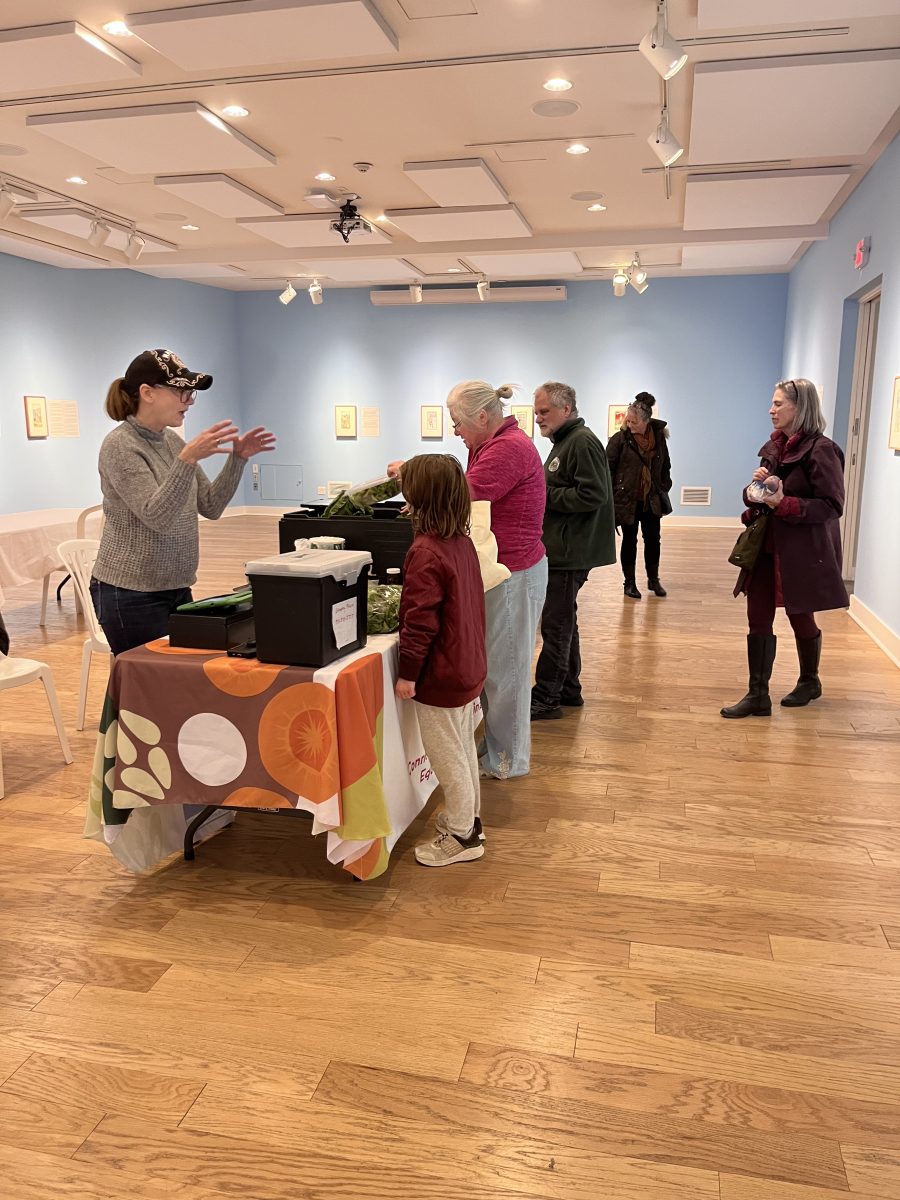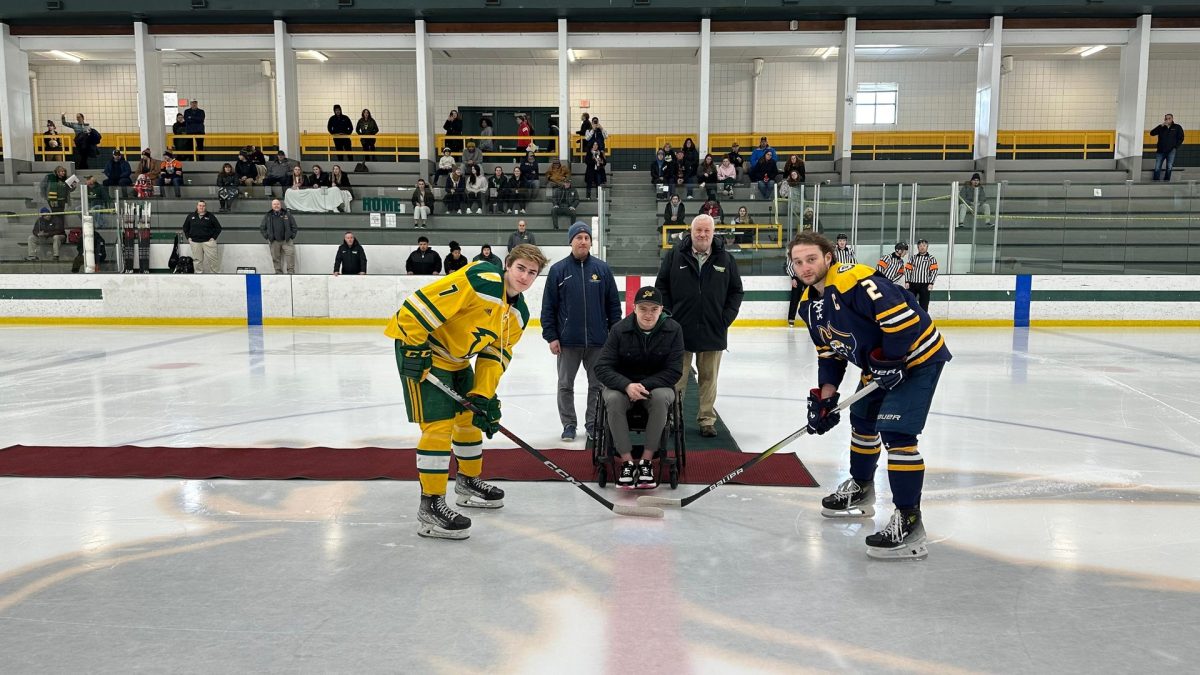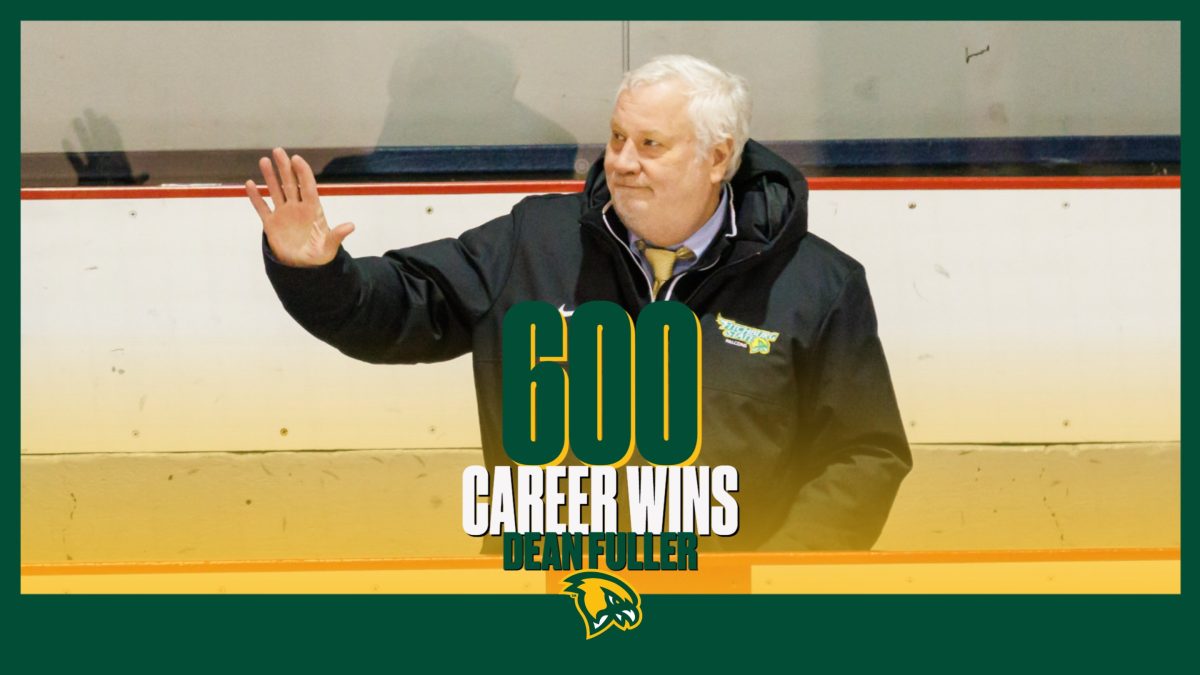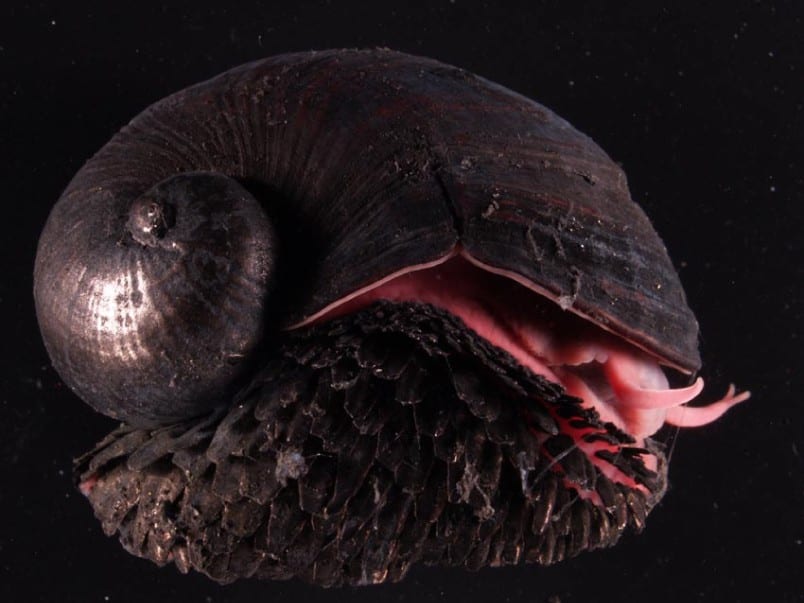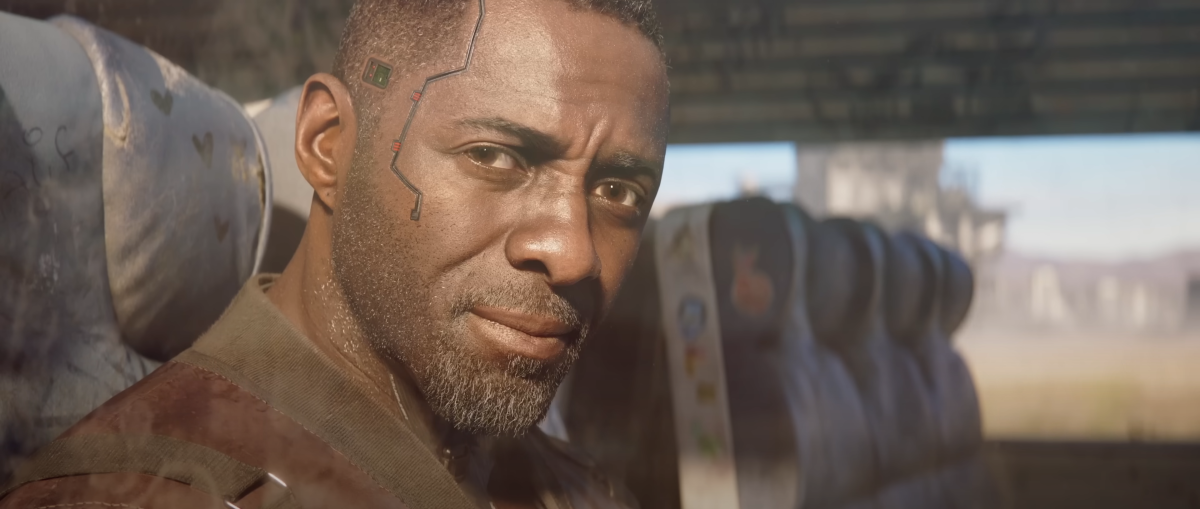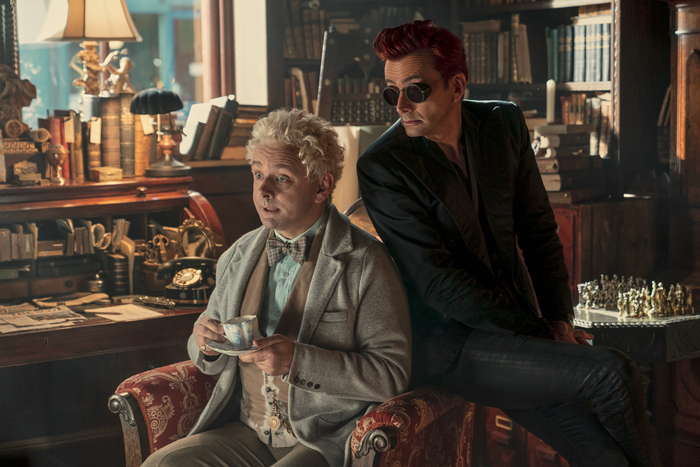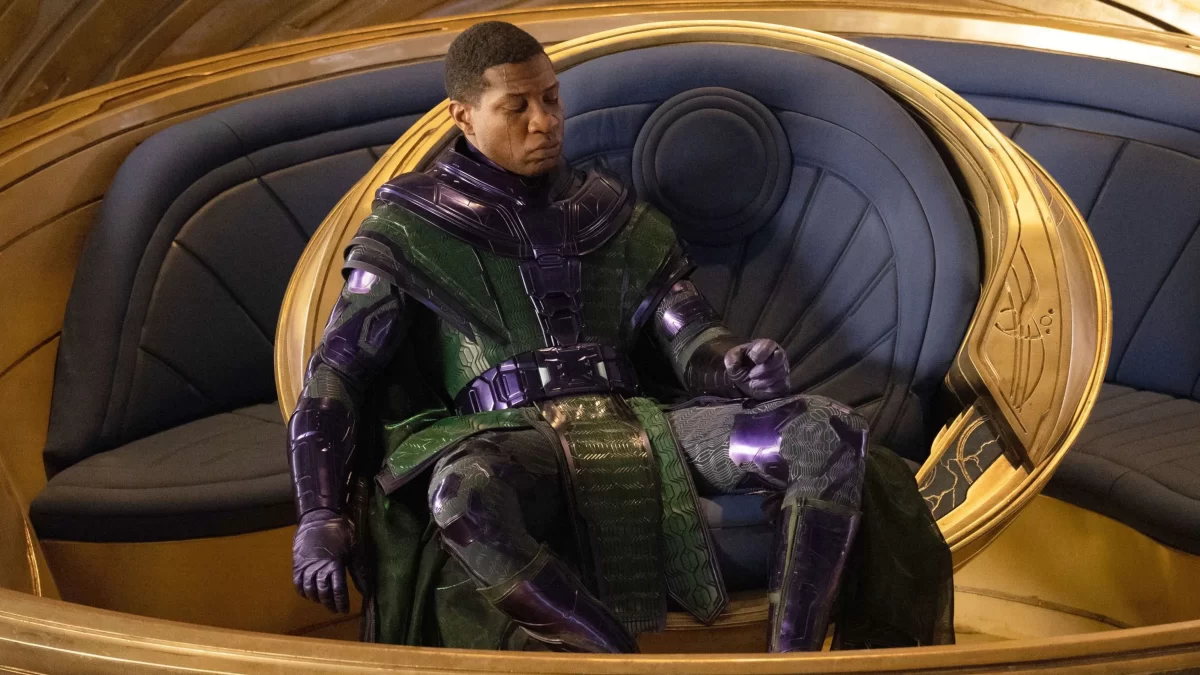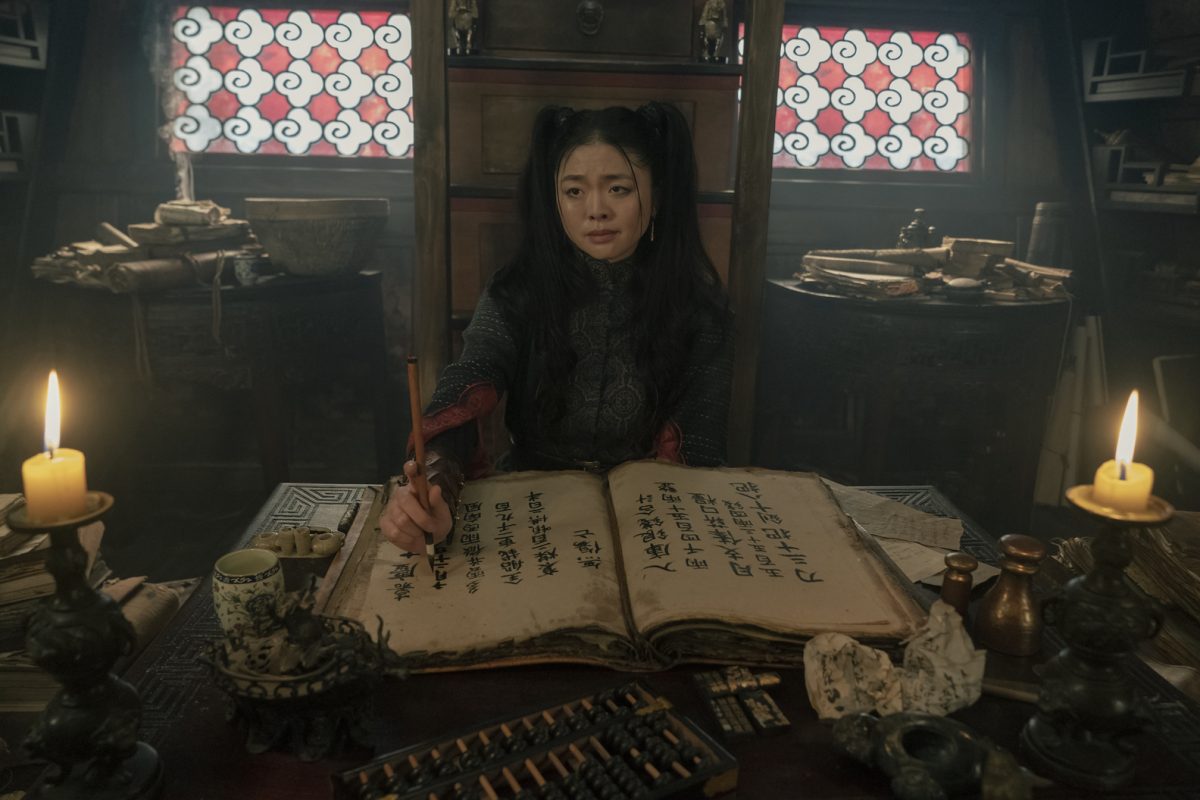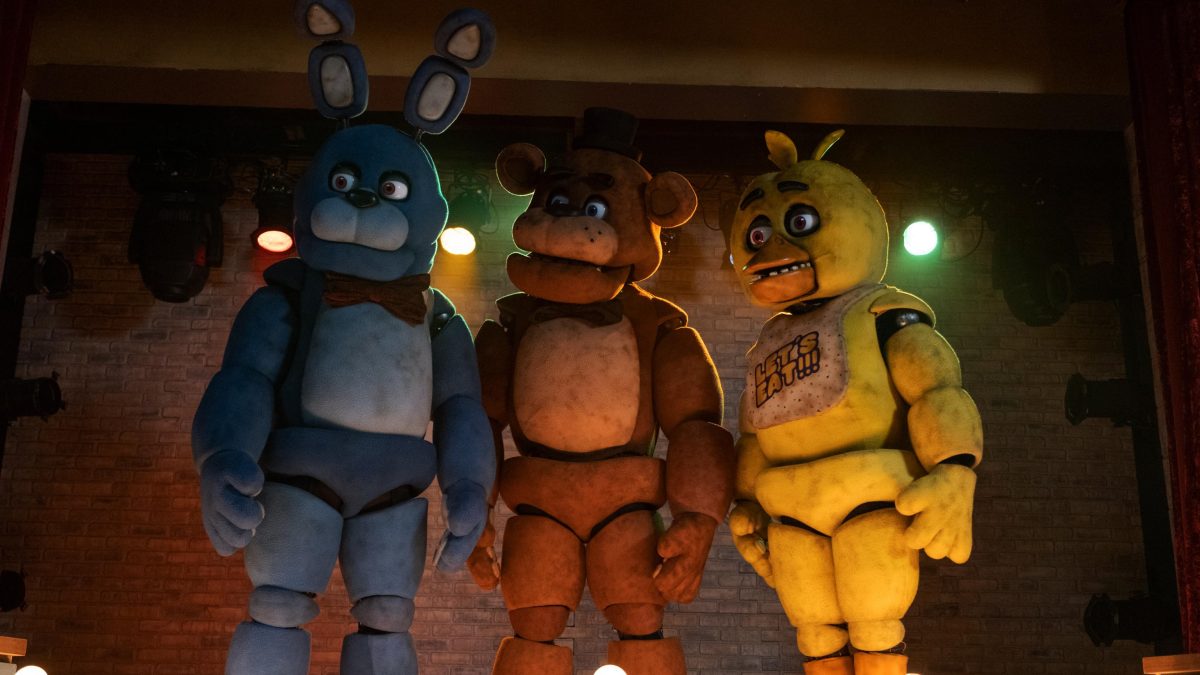 By Max Wiater
By Max Wiater
“Brilliant Traces” by Cindy Lou Johnson is the most recent production by the Falcon Players, the only student-run drama program at Fitchburg State. Director Jessica Killam and her crew did a fantastic job brining the lonely Alaskan countryside to our campus.
The stage is the interior of Henry Harry’s house in a remote Alaskan area, as a storm blows outside. We see Henry (Justin Nelson) asleep in his bed when a scream is heard offstage. Rosannah DeLuce (Erika Haynes) runs through the door – distressed, tired, and hungry, as her car has broken down during the storm. She faints on Henry’s rug and is picked up and placed into his bed. After two days of sleep, Rosannah wakes to find Henry taking care of her. In an emotional series of conversations, they learn of each other’s lives and the struggles that haunt them.
I didn’t know what to expect as I waited in Percival Auditorium to watch “Brilliant Traces.” I was intimidated by the 90-plus minutes run time with only one scene, two actors, and no intermission. But I cast my fears aside as I realized how gifted the cast is.
Haynes’ opening monologue is staggeringly long but portrayed very well. Her voice is shrill and her movements are fast as she looks around the room, ignoring the fact that she has broken into Henry’s house and is interrupting his sleep. She embodies the “damsel in distress” perfectly.
Nelson is equally impressive as Henry. His character isn’t accustomed to guests in his home, so when Rosannah happens across his house he is awkward but simultaneously comforting as a proper host who makes soup and feeds her bread. Nelson’s performance reminded me of Lloyd Dobler from the movie “Say Anything…,” soft-spoken, but full of emotion.
Though the story is great, the chemistry between these two actors was the main attraction of the show. The bi-polarity of their acting is engaging to watch; one minute the actors are manic and confrontational, then shift easily and act somber or at ease. They work together and act off each other’s emotions with such fluidity.
I managed to get the small cast and director down from the stage after their last performance to talk about how “Brilliant Traces” came to Fitchburg State, the rehearsal process, and the Falcon Players.
Wiater: So what was the rehearsal process like with just two characters and one scene?
Nelson: The rehearsal process is always hard because of school. With me, I work and go to class full-time and am a film major, where all my projects are done outside of class – so to fit a play in is insane. I’m lucky to have Jess [Killam] as the director so we could work around my schedule, because the hardest part is always finding the time; after that it’s pure memorization, because we can’t progress anywhere until we’re “off-book.”
Haynes: I have to agree, it’s time-consuming and there are so many lines. I have four or five really long monologues I have to memorize on top of other school work. But I wanted to get off-book quickly so we can rehearse – but Justin and I took a little bit to get to know each other.
Nelson: [Laughs] Yeah, there was a bit of tension until she figured out my sarcasm, but after that we were good! And I tend to stay in character for a bit after I rehearse, so I stay in weird moods because the play is clearly emotional. I need to be in that character’s mindset to a point. I didn’t want to be close with her because it would ruin the process.
Haynes: I’m the opposite, I need to be close with my co-star, I like to know them well and hang out with them. I was always slightly offended and never knew why he was so mean to me [laughs] but the rehearsals were interesting because of the dynamic we had on and off stage.
Killam: I’ve never directed before so there was a lot of work. It took the actors a bit to know their parts but it took me time to get to know them and their acting methods, so I had to balance what they required as actors and what I could offer them as a director and figure out how to make the play work.
Nelson: Jess was severely understaffed throughout the production and did a lot of tasks no director should have to do. A director is supposed to supervise and work with actors and get the vision right, but she also had to deal with technical issues. She did a lot of work herself that should have been done by someone else, but we didn’t have the manpower so she picked up a lot of the slack. It’s safe to say [“Brilliant Traces”] happened because of her hard work along with our small crew.
Wiater: Being the only student-run drama program must be difficult. Did Falcon Players get any outside assistance at all?
Nelson: Luckily we have a great theater program at FSU where everyone is very supportive of one another, including professors and alumni. Kelly Morgan helped me with my acting and helped with blocking. And it goes without saying that Richard McElvain is always supportive. We got our fair share of outside guidance which helped us greatly through production.
Killam: CenterStage and Mary Chapin Durling lent us stage equipment and props, as well.
Haynes: Thanks to everyone who helped us out, it is very appreciated!
Wiater: What is it like to perform a 90-minute play?
Nelson: Sometimes people forget lines or props, but that’s the beauty of live theater – and that’s why people go to performances, to see something real with all of its nuances. Some people saw the show several times and got to see a different performance each time. That’s the beauty of theater, it’s an imperfect creature, but it’s perfect in its own way.
Killam: We’ve had our good nights and we’ve had our great nights. Sometimes everything just works, sometimes lines are delivered differently or little tweaks in the movements, but ultimately it’s always the same show. The later dates are usually better because the actors get comfortable on stage and with the material.
Haynes: Everyone should see the same play at least twice because it will never be the same. It’s always fun to see the little differences.
Nelson: I do some improv [laughs], it keeps it fresh. As an actor when you do a performance multiple times you don’t want it to get stale so you try and bring something different. It excites us to try something different on stage, it’s a rush!
Wiater: So what was the most difficult part of the performance?
Haynes: The hardest part is never getting off stage and never being able to relax. I had to keep my energy up through the whole performance, it’s so draining. All that matters is being there for your scene partner and getting through it. I get into character for such a long period of time as soon as those lights go out I’m relieved.
Nelson: For me the five to 10 minutes before going on stage is the hardest thing to deal with. But the second I walk out – it’s gone, it just disappears because I know what I have to do. For this play it was particularly hard to embody emotion because of all the ups and downs my character goes through.
Killam: When the actors are on stage during a performance I can’t do anything if something goes wrong. So many things can go wrong, I just have to let go because I know once the show starts I can’t do anything more. I did everything I could to prepare them for the performance and I trust their abilities.
Nelson: Putting on a show is one big, trust exercise – a circle of trust [laughs]!
'Brilliant' show from Falcon Players
December 10, 2011


